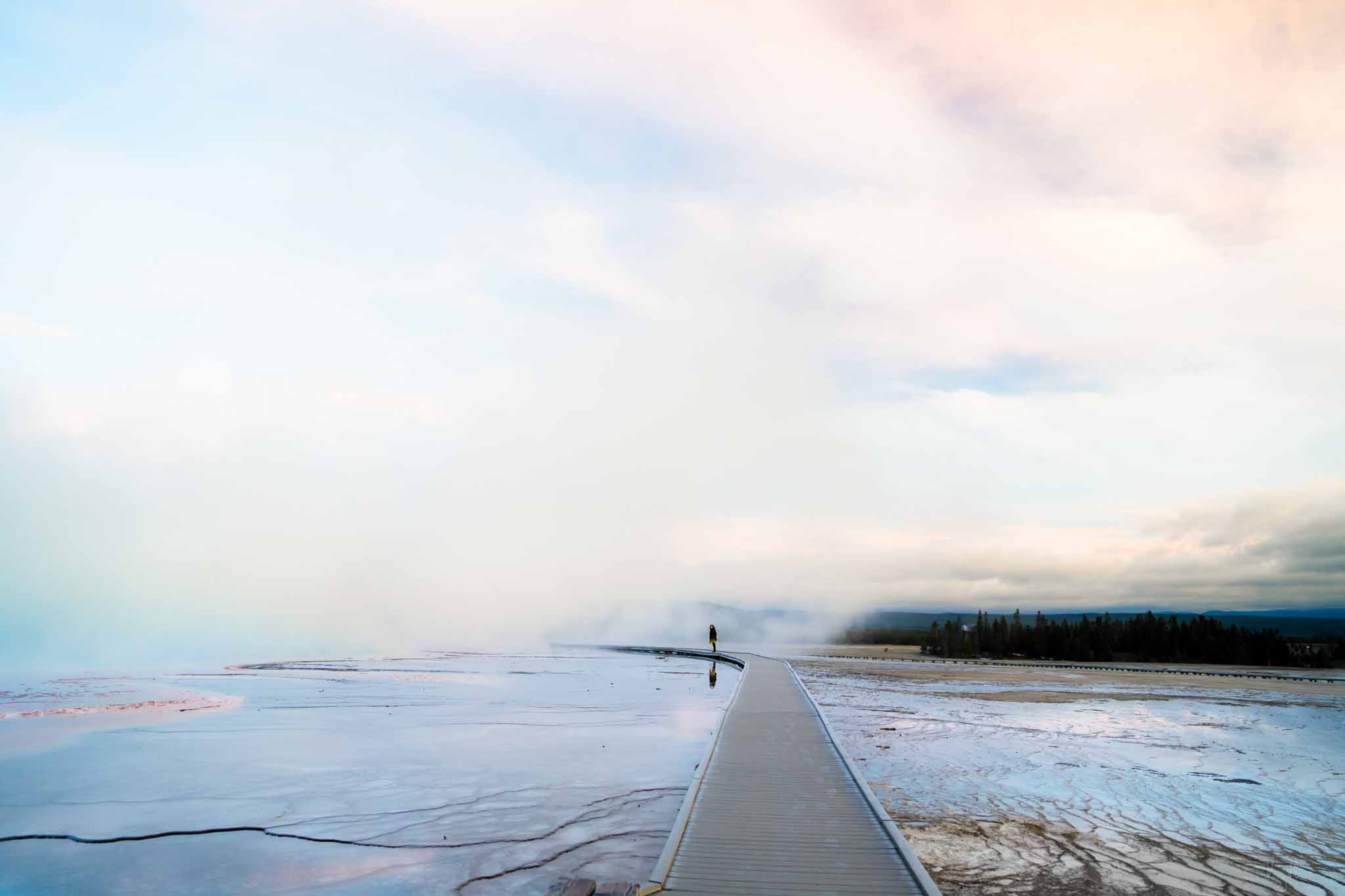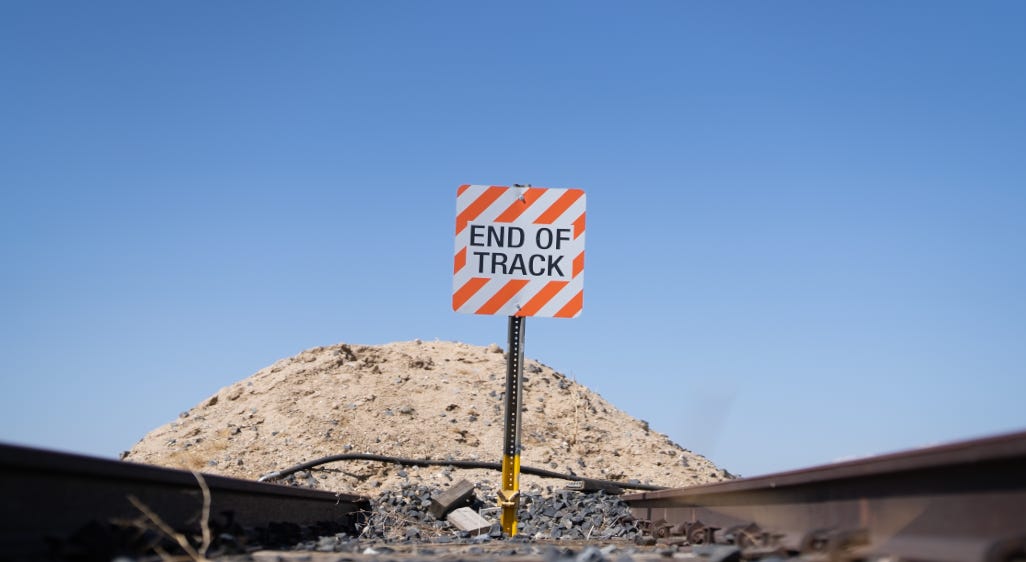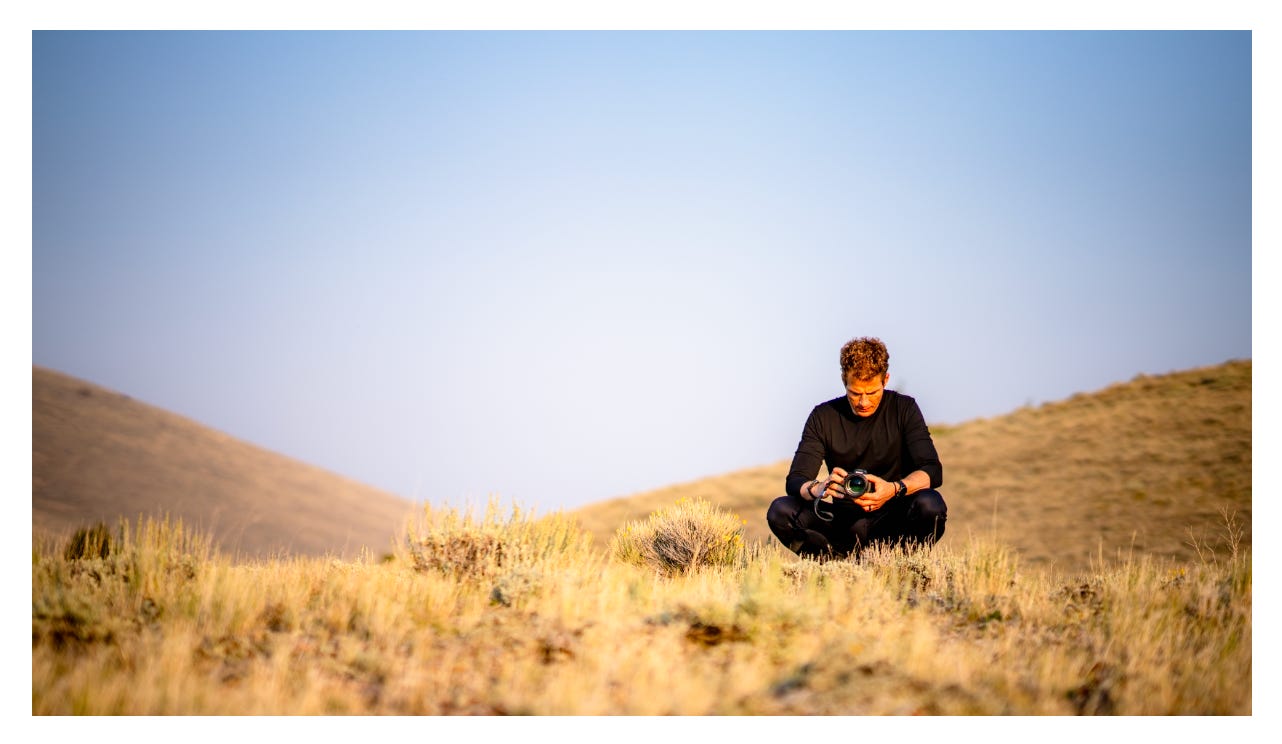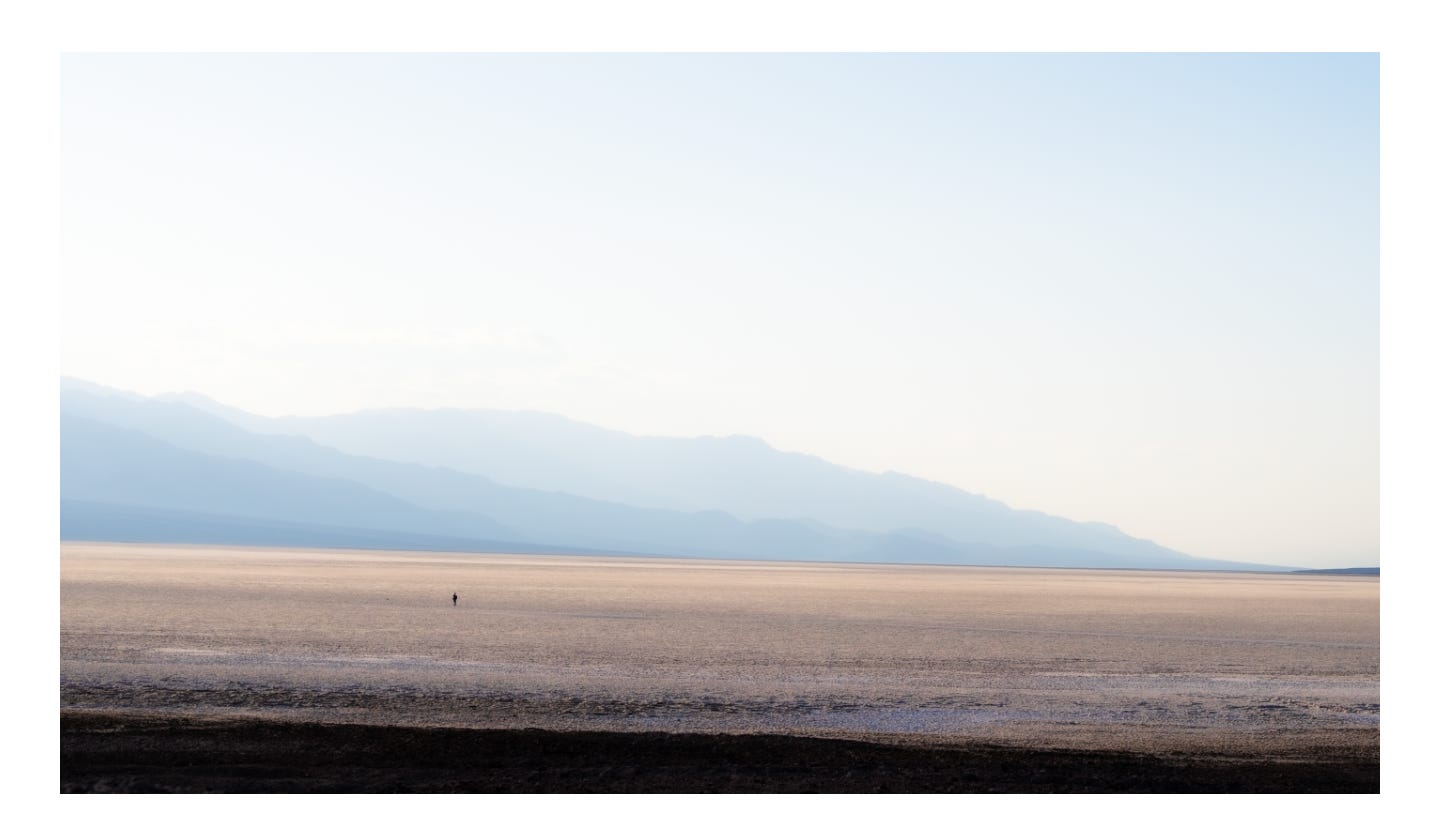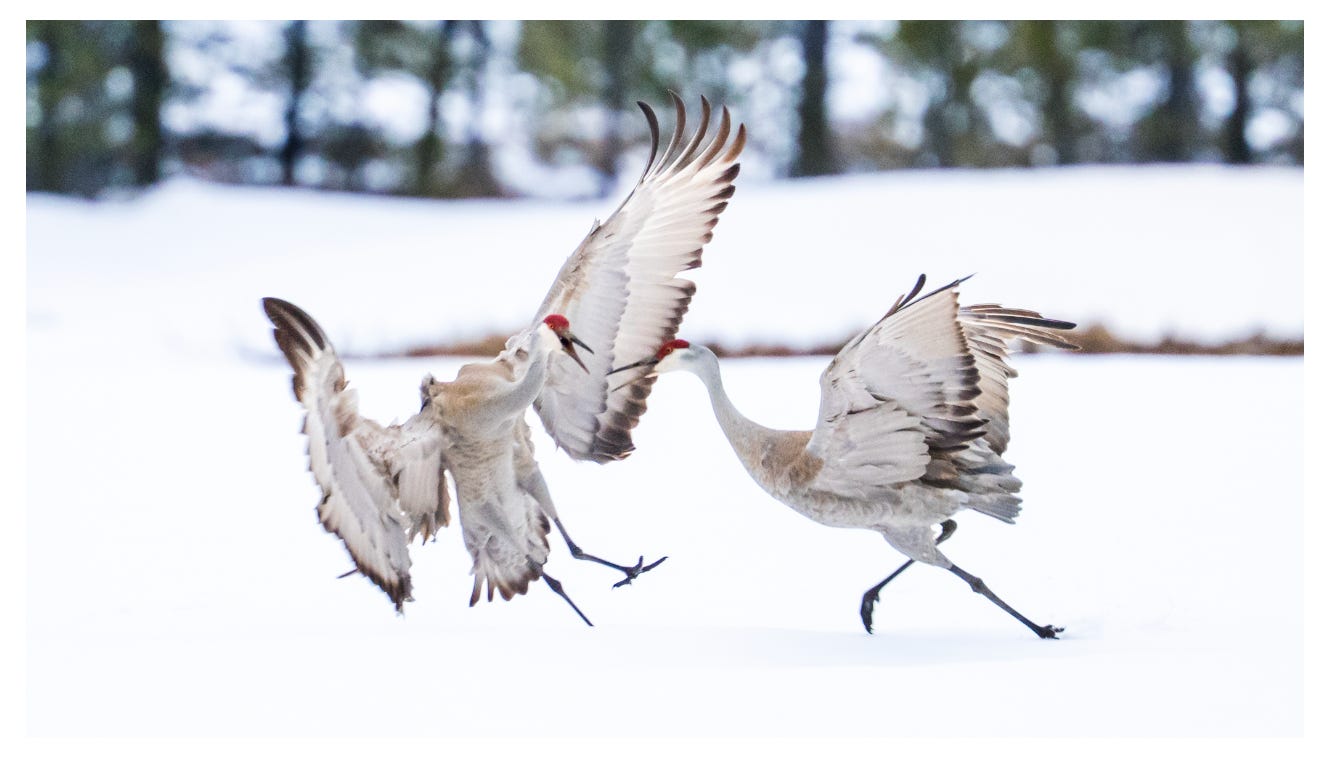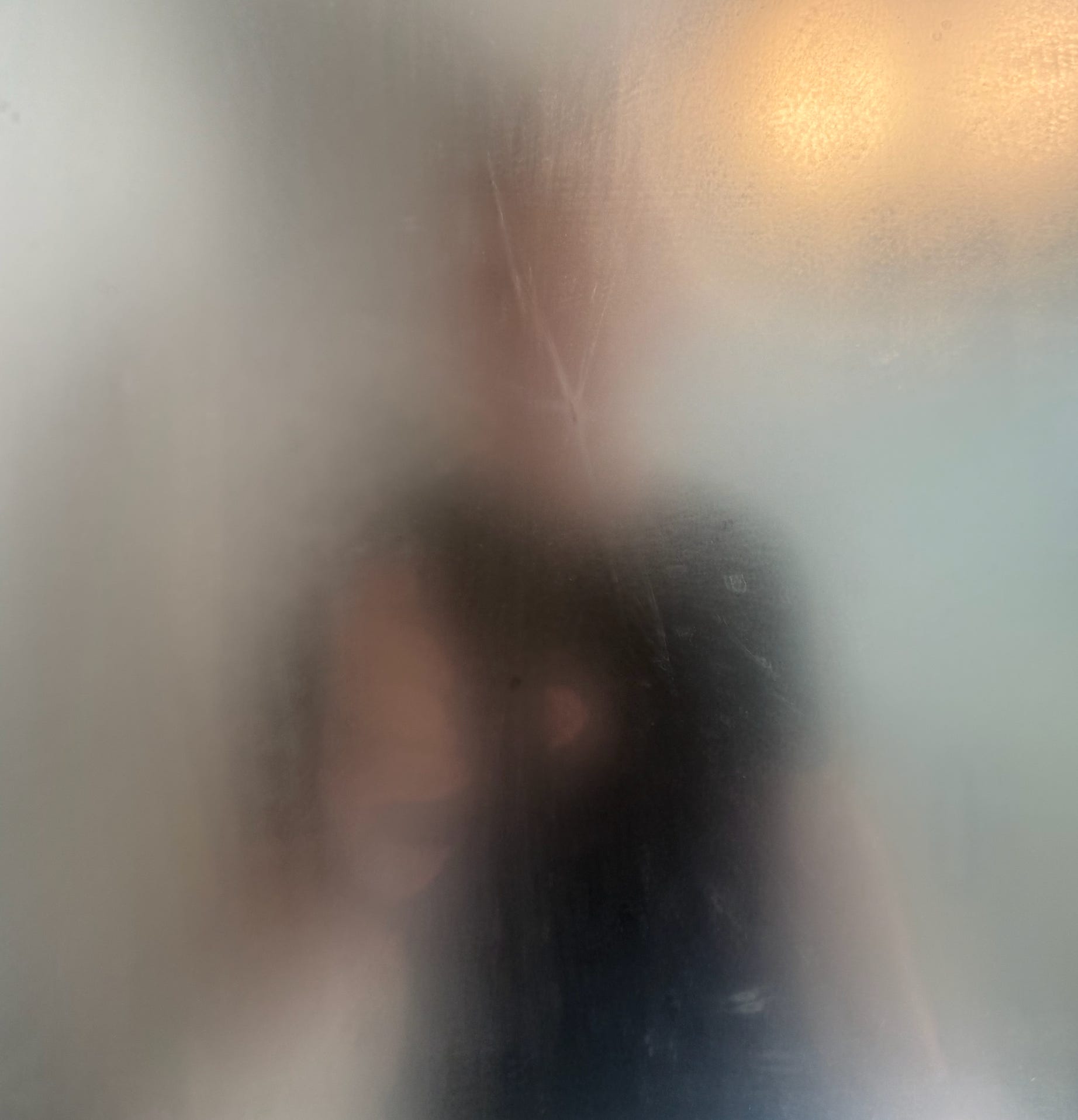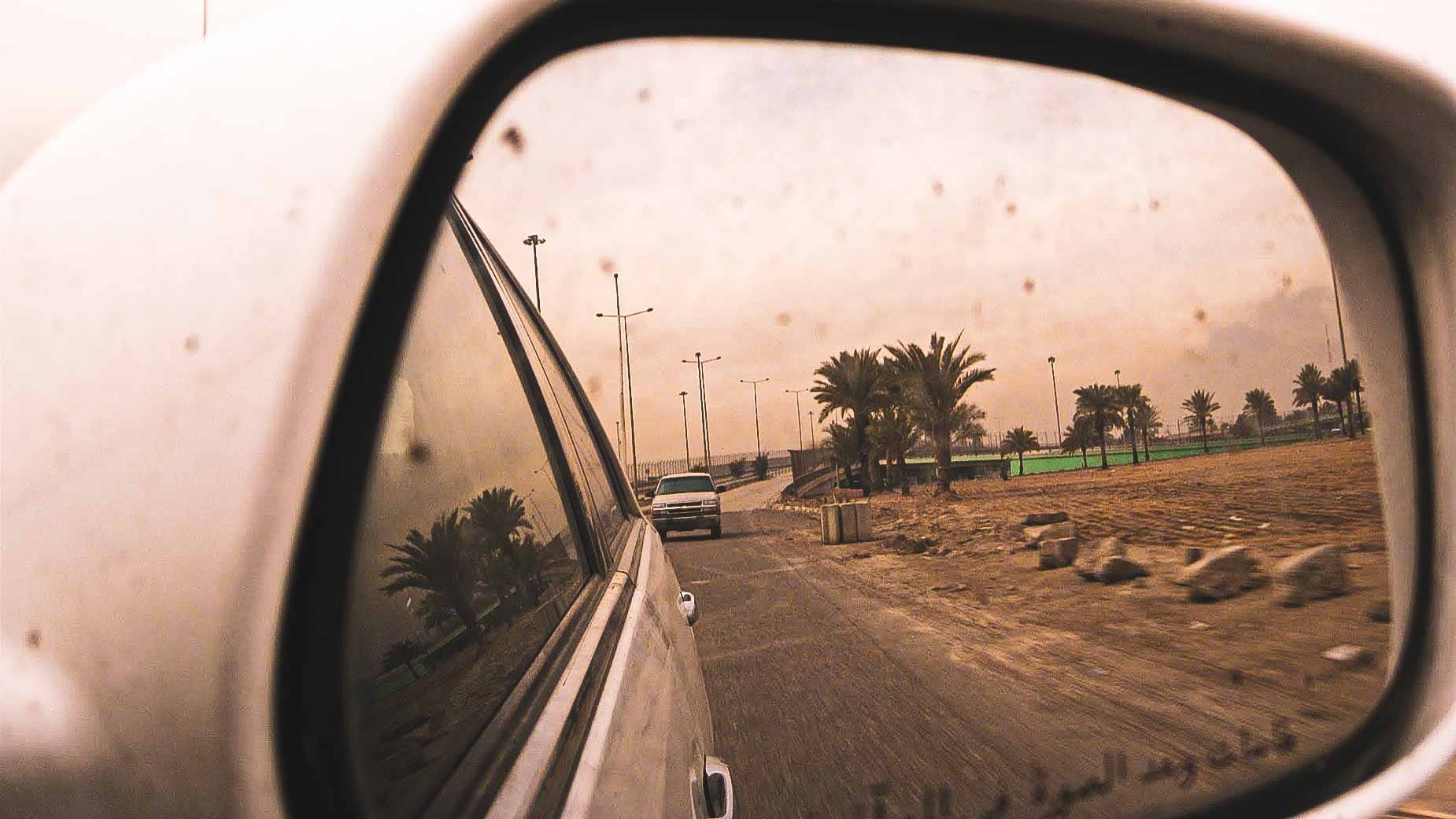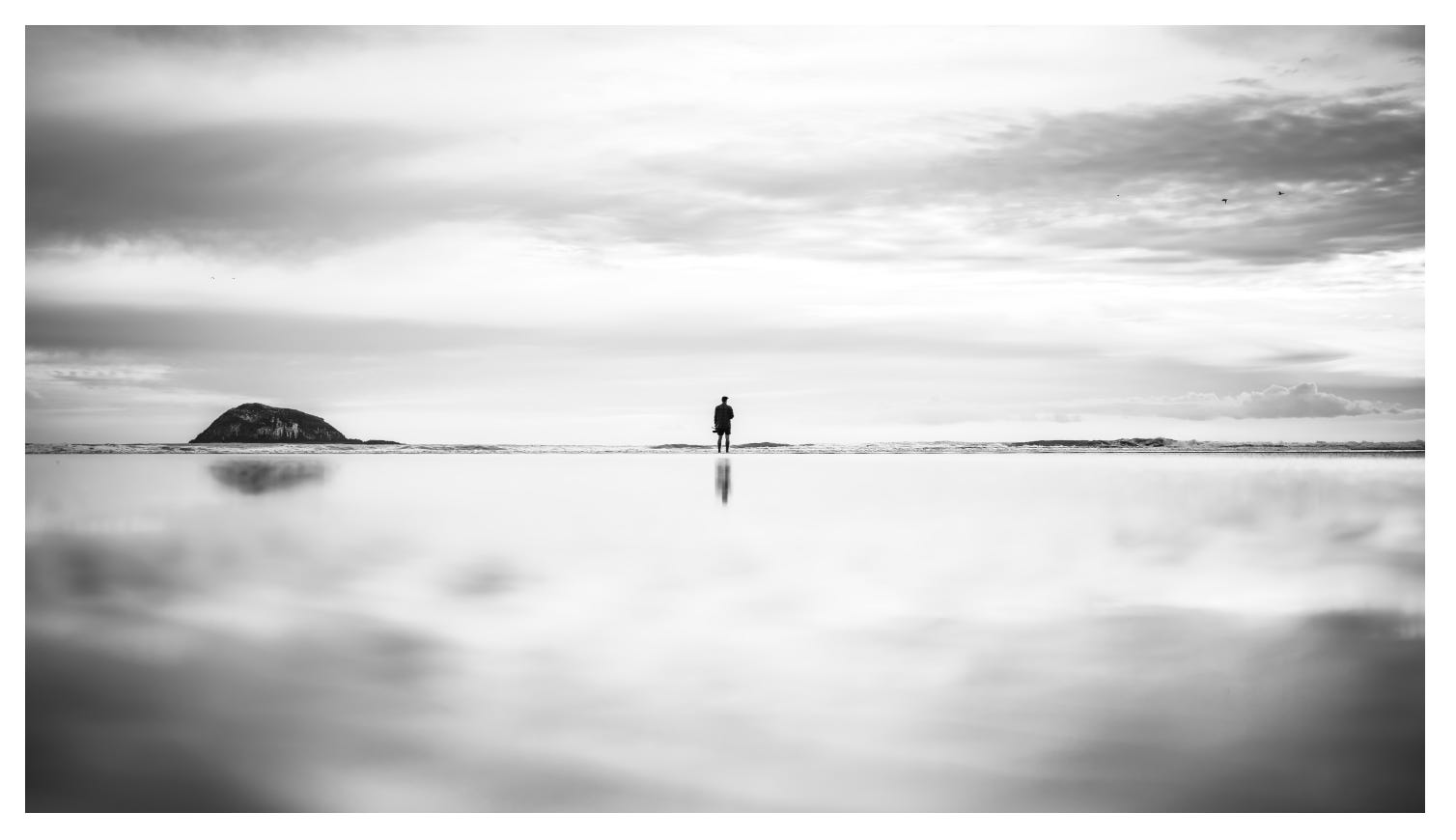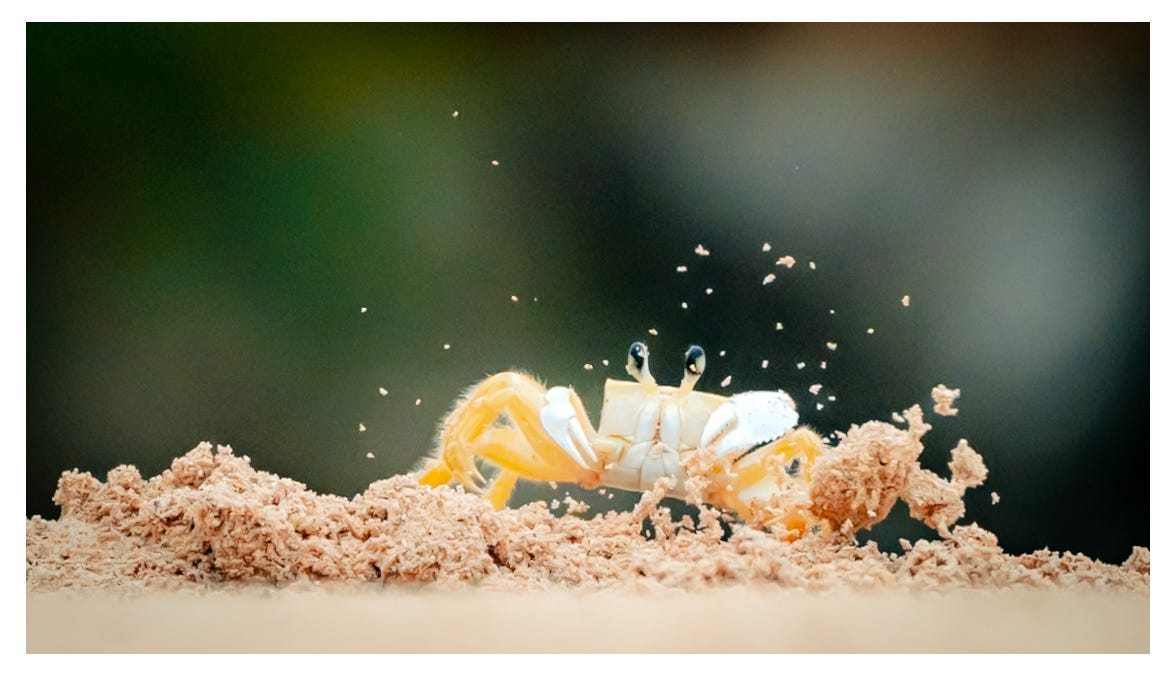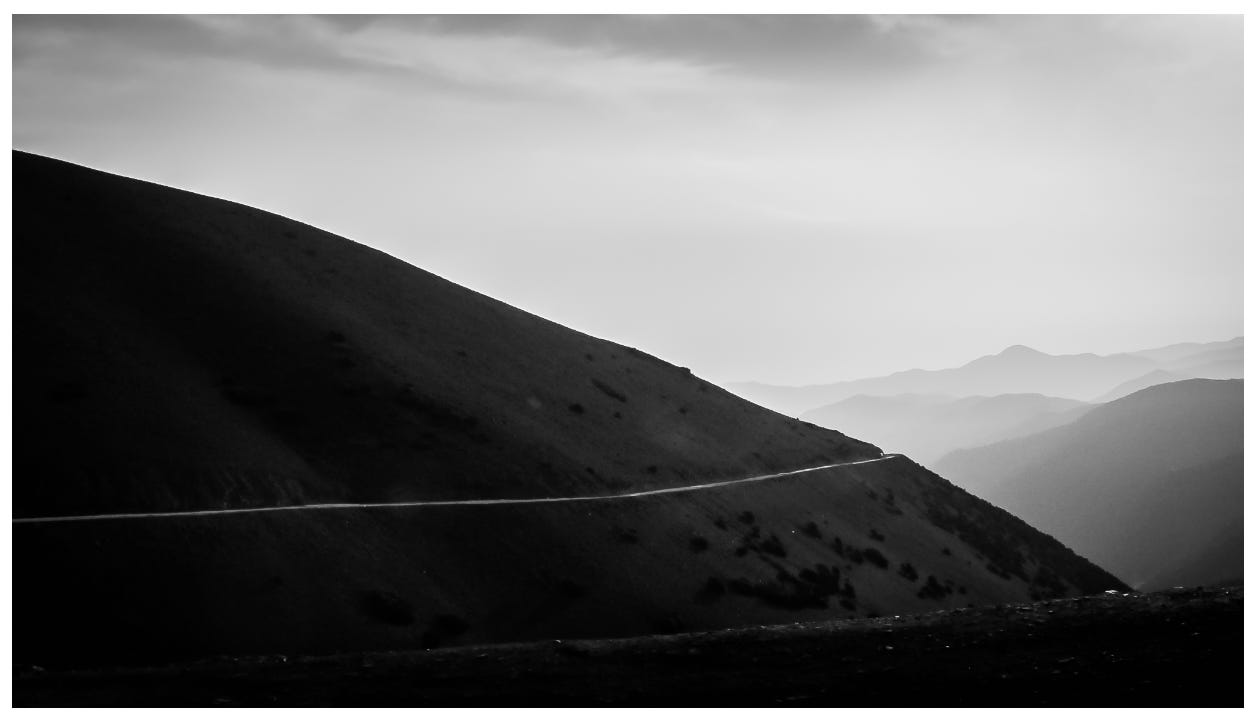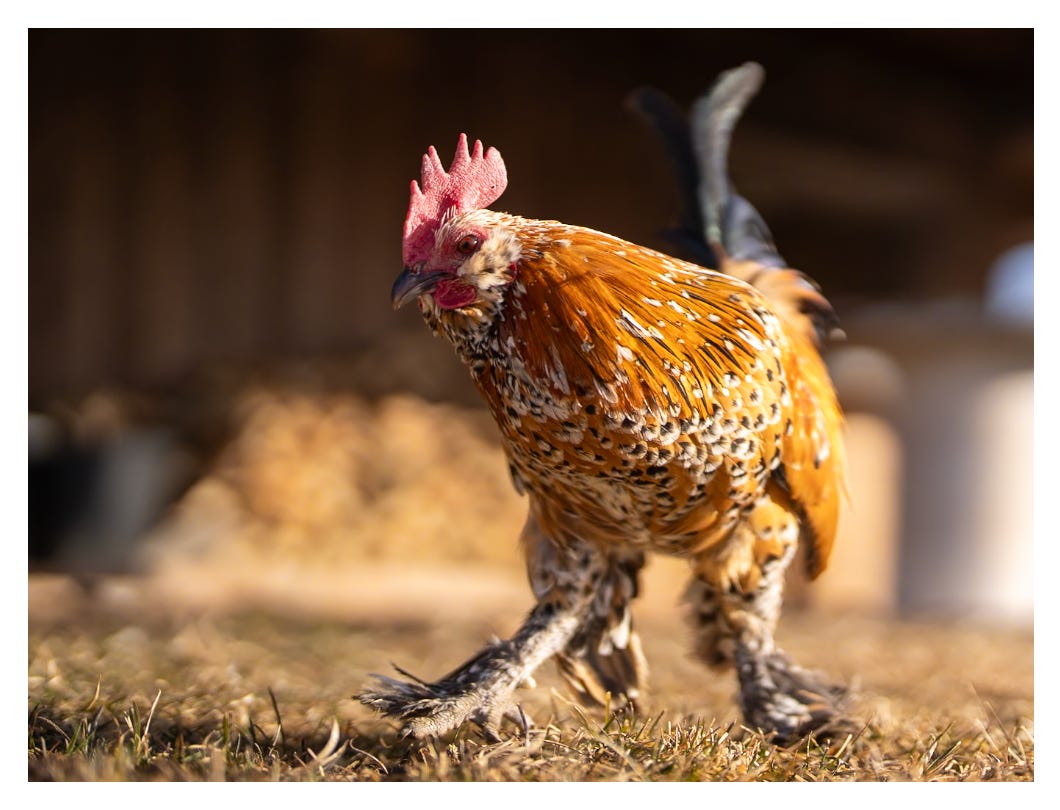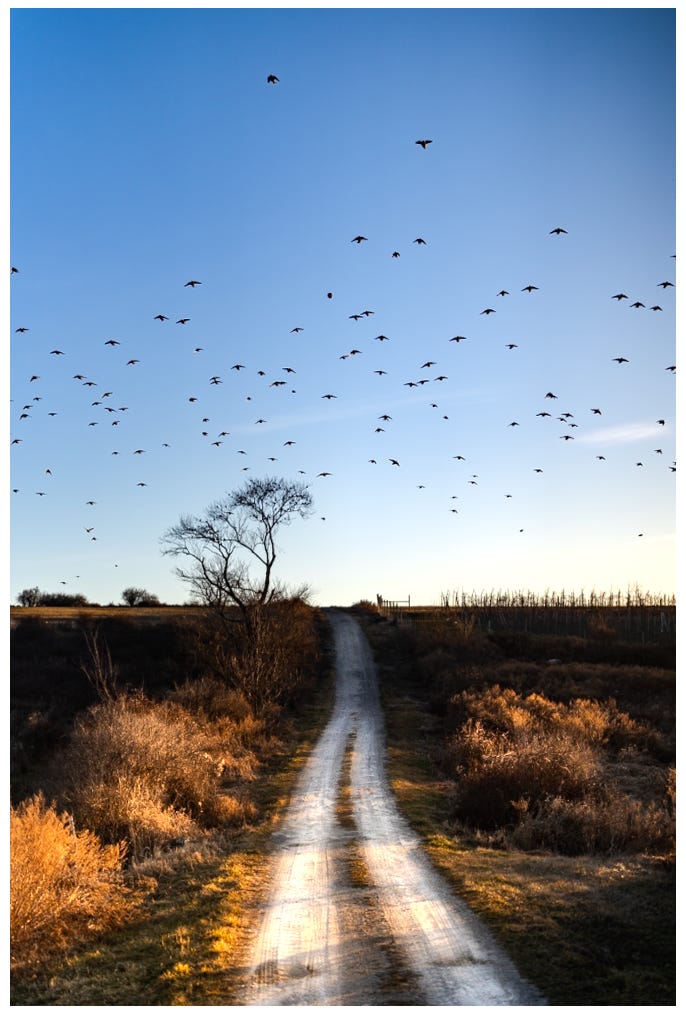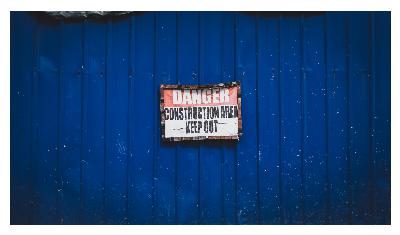Discover Better Today Than Yesterday
Better Today Than Yesterday

Better Today Than Yesterday
Author: by Kelly Vohs
Subscribed: 2Played: 11Subscribe
Share
© Kelly Vohs
Description
Hey! Join me as I share my lessons about life, leadership, and the peaceful pursuit of Better Today Than Yesterday.
kellyvohs.substack.com
kellyvohs.substack.com
155 Episodes
Reverse
It’s Sunday night. He has his favorite bottle of scotch and is settling into his weekly ritual: reading emails from every employee, each listing their top five priorities — a practice Jensen Huang started in the early days of NVIDIA. For him, this was about getting early signals. It was definitely about control too.From the outside, some might call that micromanagement. Maybe even a bad practice. I’d call it unconventional. Bad practices fail. You’ll lose, get fired, or maybe even jail.Best practices are just common practices with good PR. Safe. Predictable. Average.Unconventional practices. At first glance, you might even mistake them for bad. But often they’re what we’ll do tomorrow. Ford’s assembly line was unconventional once. Misunderstood until they aren’t.What we’re really after is extraordinary. More than ordinary. That takes the courage to explore until you find what’s right. Not what everyone else says is right.Sometimes that means taking an unconventional path. Sometimes it just means executing the basics so brilliantly you beat everyone else. Extraordinary lives in both places. In the practices no one understands yet, and in the fundamentals no one bothers to masterTake care, friend. Be good.—Kelly This is a public episode. If you would like to discuss this with other subscribers or get access to bonus episodes, visit kellyvohs.substack.com
“Ego is about who’s right. Truth is about what’s right.” —Tribe of MentorsI was chatting with Princess Buttercup the other night.She’s built an incredible business. It has a real impact on people. Reflecting on something I was dealing with, I said to her, “I wonder if there are only two states when running a business. On the floor in the fetal position or euphoria.”When you’re in the thick of building something, most days are just a series of problems to solve. And the bigger your responsibility, the more those problems sit somewhere on the spectrum of hard, bad, or maybe even cataclysmic. That last one is rare. Most things are solvable. Problem solving is what we do for a living—all of us. We have jobs because there are problems to solve. And while most people don’t like finding problems, not finding them is worse. Finding a problem is finding a place to get better. To make the business more valuable. Or to shore up an area where you’re exposed. So, relish the new problems. They’re a gift.Early in my career, I felt I had to solve the problems myself. Maybe that’s natural. The younger we are, the more we think we know. Or maybe we’re just less willing to look foolish. That was me. But holding a position doesn’t mean you have all the answers. Usually, there’s someone closer to the pain who sees the way through.At some point, I realized the job of a leader isn’t to have all the answers. It’s to make decisions and make sure the team has what it needs to execute. Leadership begins when the path is unclear. Take out the flashlight, or machete, or whatever, and go. Sometimes that direction leads to an outcome that’s not ideal. But you still decide.From all of this I know I’m not responsible for the answers. I’m responsible for the decisions.I’ve still got a long way to go on managing my ego, my need for approval, and my fear of letting people down. But my default now is to put the people closest to the problem in the room and ask, “What do we want to do?”When the answer isn’t clear, people will disagree. Ideally, they will.During a leadership meeting at GM, Alfred Sloan once asked, “I take it we are all in complete agreement on the decision here?” When the room nodded, he said, “Then I propose we postpone further discussion until our next meeting, to give ourselves time to develop disagreement and perhaps gain some understanding of what the decision is all about.”That’s when the real work begins. Because conflict over the solution is healthy. What’s not often spoken is this: there are two kinds of conflict.Personal conflict and problem conflict.Personal conflict shows up when we’re protecting something. Sometimes it’s internal: fear, insecurity, the need to look smart or stay in control. Sometimes it’s external: status, power, recognition, resources. Either way, it pulls focus. It keeps us from listening. It turns the conversation into defense instead of discovery.Problem conflict is grounded in standards and craft. Driven by the desire to get to the right answer, not be the right answer. That’s what people mean when they talk about “healthy conflict.” It’s not about ego. It’s about better. It doesn’t attack people. It attacks the problem.The hard part is that these two are often tangled together. We think we’re having a good, healthy debate, but what we’re really doing is protecting something—usually ourselves. And often we don’t even realize it.I’m working on that. On recognizing when I’m in the way. Most of the time it’s not intentional. It’s just ego. Or fear. Or maybe I’m just tired. But when I let that lead, I stop listening. I get stuck defending. And nothing moves.We can’t forget—or ignore—that people show up differently in conflict. Some go quiet. Some get loud. Some need to talk it through and might sound like they’re rambling. Others hold back until they feel safe enough to speak. That doesn’t mean they’re not paying attention. It just means they process things differently.If you want the best answer, you need the whole room.Different perspectives. Different styles. All heard. All understanding. All contributing. That’s how you get somewhere.So here’s where I’ve landed.Conflict is good. But it has to be the right kind, and we need to be aware of the messy middle when personal and problem conflict overlap.When we check our ego and fear at the door, not only will everyone be happier, but we will get better answers. Importantly, we can’t control other people, but we can control how we show up.More truth. Less defense.More listening. Less protecting.More understanding. Less justifying.That’s where better lives.Take care, friend. Be good.—Kelly This is a public episode. If you would like to discuss this with other subscribers or get access to bonus episodes, visit kellyvohs.substack.com
“The quality of a person’s life is directly proportional to their commitment to excellence.”—Vince LombardiI don’t think it’s entirely true. Plenty of people are deeply committed to excellence and still face hardship. Circumstances, ancestry, DNA, luck—those things all matter.But it’s likely mostly true. Life tends to get better, richer (whatever that means to you), and more meaningful in proportion to how seriously you pursue excellence.Excellence is personal. It means something different to each of us. Your definition and mine are probably not the same. And while I think comparing yourself to others is generally a bad idea, if you never compare yourself to anything real—someone better, something harder—how do you know your standard means anything at all? It might just be hollow. Just comfort dressed up as conviction.Maybe real excellence happens when it collides with reality. And the truth is, reality often exists outside your own head.It’s easy to avoid that. Hard to confront it.That moment when you say, maybe I’m not as good as I think.Or maybe that wasn’t as good as I thought.Of course, there are exceptions. You and I can look at the same piece of art and feel completely different things. So maybe, like just about everything else, excellence isn’t fixed.Maybe the standard moves.Maybe there are always new ones.Maybe none of us are right.But I do think this is true:Not everyone who commits to excellence finds an excellent life. But no one finds it without the commitment.Take care, friend. Be good.—Kelly This is a public episode. If you would like to discuss this with other subscribers or get access to bonus episodes, visit kellyvohs.substack.com
"Bravery is a subjective virtue measured by how much insecurity, vulnerability, and resistance have been overcome when you’re afraid." -Mark MatousekI keep a journal.One of my favorite things about journaling is looking back on the same day from other years. Some days there are no entries. Today, there were 17. One jumped out.I'm in NYC.Mixed emotions.I'm a little tight. Not sure why.But I just read something that struck me.We all have a natural desire to:* Believe we're in control of our time. To operate with free will. * Be intelligent. Even if only in our way. * Be good(Those are from Robert Greene)Anything that challenges those beliefs makes us feel trapped, foolish, or morally wrong. That hurts. It creates frustration, sadness, maybe even shame.That was two years ago. As I write this, I'm not in NYC. Lots of other things have changed. Kids went to college, jobs changed, and a few other things too—some painful, some joyful. I think I'm better than I was that day. At least a little more clear-eyed. And those filters still feel relevant. Still helpful.TimeWhen I protect my time for what matters most, I’m better. Happier. And so are the people around me. I can’t control it all, but I need to control what I can.If I am not intentional with my time, someone else will be. The cost is real. Doing the wrong things, missing what matters, or showing up without the energy to make it count.Sometimes it means another meeting. Sometimes it means solitude. Or showing up fully at family dinner. I have a strong drive to keep charging, but I’ve learned I also need to stop and recharge.I don't have all the answers. But I know this: saying yes to everything does not work. We need to normalize saying no if we want to use this resource well.IntelligenceYou might be book smart, emotionally intelligent, or my personal favorite, high in CQ, Courage Intelligence. Maybe, if you’re one of the fortunate, you’re graced with all three.Some people worry about being smart. I know I have. I still do sometimes. But I think most of the world is working to avoid looking foolish.The ability to look foolish to learn is a superpower.It's a trade. You give up the arrogance that you might know everything, and in exchange for the humility that you probably don't know much at all.When we shift from trying to have all the answers to simply trying to find the right one, that is probably the most productive place we can be.GoodnessThis one hits for me. Most of us want to be seen as good, but what we really want is to be accepted. Even to be loved. This is where we give people the most power. Our actions or inaction are viewed through their lens, their mood, and all the other complexities that come with being human. Our fears, stories, and expectations get tangled up with theirs.Am I a good friend? A good partner? A good leader? A good person?“Fail” at this, and it pushes on identity. When that sense of goodness feels shaken, it’s worth asking more questions.Did I actually do something wrong? Am I being misunderstood?Or is the other person dealing with something of their own, and this isn’t really about me? More often than not, that’s the case.What I’ve found is that when do I get it wrong, it’s rarely about intent. It’s about impact. I meant well. It didn’t land well. That can be painful. But it’s rarely permanent.Being wrong or making a mistake doesn’t mean you’re not loved. Or even liked. It doesn’t mean you’re not good. It just means there’s work to do.When I feel off-center, I'm trying to slow down and ask better questions.* What's going on with my time?* Am I chasing someone else’s approval?* Am I letting their reaction shape how I see myself?Most of the time, they’re just working through their own stuff.We all are.Take care. Be good.—KellyMore on Courage Intelligence (CQ): This is a public episode. If you would like to discuss this with other subscribers or get access to bonus episodes, visit kellyvohs.substack.com
"One of the most confounding laws of human nature is that when faced with a task, people will work harder alone than they will when joined in the effort—a phenomenon known as social loafing. There is, however, an antidote. It’s the presence of one person who leaves no doubt that they are giving it everything they’ve got." -Sam Walker, The Captain ClassA story stuck with me this week. A colleague shared it, having picked it up from someone else. Stories travel like that. He was talking about a special company. The kind that, when you add it to your LinkedIn, you shine a little brighter. It feels like you've achieved something, even if you haven't done anything yet. You're riding their train. The bigger the company, the easier it is to do that. But it's not a train or a bus. Both carry mostly just riders. I see a ship. A Viking ship. Not the pillage-and-destroy kind, but the explore-and-find kind. Adventure. Purpose. Direction. It has long benches with no space for stowaways to hide. When there's no wind and the tide is against you, everyone matters. And, it's not just about effort. It's about alignment, pace, rhythm, and the people next to you. Are you helping or hurting? Yet still, things change. I've woken up to realize that I've been in the wrong seat and even on the wrong boat. When that happens, it's on me to do what's right for the team. Get back in the fight, or pick a different journey. Take care, friend. Be good. —Kelly This is a public episode. If you would like to discuss this with other subscribers or get access to bonus episodes, visit kellyvohs.substack.com
“Responsibility means recognizing both pleasure and price, action and consequence, then making a choice.” — Dan MillmanThere’s a word most people don’t want to be associated with.It sounds sharp. Dangerous. Maybe even wrong. But try building anything that matters without it.In 1961, psychologist Arnold Buss described two kinds of aggression. One hostile, driven by anger and meant to hurt. The other instrumental and driven by purpose. This doesn’t come with rage, but intention. A response, not reaction. This is focused energy that is not violent but has no apologies for pursuit.Be a good partner. Raise strong kids. Build something that matters. That takes aggression.Aggression in the service of love. Aggression in the pursuit of truth. Aggression in the protection of what matters.It’s not just helpful, it’s required.The word relentless resonates with me too. But like grit or resilience, it feels safe. If you call someone resilient that is usually a compliment. It means you show up, don’t quit, take the pain and move anyway. That’s necessary, but not the full story. And not enough.Sometimes, banging your head against an obstacle doesn’t move it. Maybe that’s when the relentless call on aggression.Not recklessness. Risk. Attack.Call someone aggressive and most of the world flinches. And maybe that’s the point. Fitting in feels safe and that’s why most people do it. Safety in numbers. But you risk getting stuck in someone else’s discomfort. And that can keep you small.Show me a parent whose child is threatened or sick. Or a parent of a child with special needs. They won’t just endure. They’ll fight. They’ll be relentless, yes. But they’ll also get sharp. Fast.Because when something truly matters, you don’t wait. It’s resolve fueled by a kind of impatient patience. The kind that acts.Or think about the neighbor who loads up a truck and drives 500 miles after a hurricane to help people they’ve never met. That’s not persistence or grit, that’s aggressive action.What’s the cost of worrying about someone else’s labelProbably a lot. More than I’m willing to pay.You’ve seen it used well. Steady. Unassuming. But when it’s time, they move with something stronger than relentlessness. Something that penetrates the problem and is hard to ignore.When it’s paired with humility, it becomes something rare. A kind of aggressive humility.It’s the willingness to pursue what matters without needing the spotlight. A confidence that doesn’t posture. It’s not about proving something. It’s about finding the right way, not their way.It’s about results.I’ve worked with people like that. I’m married to one. I think we might be raising a few.To do something that counts, you’ll need to be aggressive. With intention. Not emotion.And without apology.Take care, friend. Be good. —Kelly This is a public episode. If you would like to discuss this with other subscribers or get access to bonus episodes, visit kellyvohs.substack.com
In order to be right, you must be willing to change your mind. If you’re not willing to change your mind, you’re going to be wrong a lot. -Shane ParrishI’m wrong. About something. Or lots of somethings. We all carry a few strongly held beliefs. But if you never flip them, never walk around to the other side of the table, you risk building on something a less experienced version of you got wrong. Take one thing you’re sure about and look at it from the other side or at least another angle.For example, I’ve always believed in working backwards. I first used it in the military, then to build teams and companies. Define the objective. Build the plan. Execute. Start with the end and work back. It gives you clarity and confidence.Maybe the better move is to work forward. Start from where you are and stay alert to what the world is actually telling you. Hard in big organizations, I admit. But that shouldn’t stop us.I’ve also believed education is the foundation of progress. Maybe even the point of life. But what if that’s not true? What if learning only works when it rides on the back of humility and courage? Without those, maybe we don’t really learn. Or act.So, flip something this week. You don’t have to let it go. But you should test it. It should have to earn its place. That’s what I'm working on. Certainty is comfortable. Truth is what keeps us in the fight.Take care. Be good. —Kelly This is a public episode. If you would like to discuss this with other subscribers or get access to bonus episodes, visit kellyvohs.substack.com
To bear trials with a calm mind robs misfortune of its strength. -SenecaYesterday I met someone who runs fifty 1:1s a week.I also know someone who does zero.Both are sure their way works.Both are probably right.I used to say leading and managing is complex. Because people are complex.Today, I’m not sure that’s right.I think it’s simple. Just sometimes hard.There is no right answer. There is just right now.With the information you have. And what your team needs. Usually, the regret isn’t saying it or doing it.It’s wishing you had.Hard decisions.Hard conversations.Don’t worry about applause. Worry about what’s right.Sometimes you’ll question yourself. That’s normal.Just don’t time travel.Worry and regret are just misuses of your imagination.What matters is staying in it.Go.Exploring. Asking. Trying. Learning. Questioning. Improving. Facing. Acting.That’s the job.Not knowing everything. Not having the perfect answer.But doing the hard things.Because once you stop doing that, it’s over.Take care, friend.Be good.—Kelly This is a public episode. If you would like to discuss this with other subscribers or get access to bonus episodes, visit kellyvohs.substack.com
“The problem is that obviously good ideas are not truly innovative, and truly innovative ideas often look like very bad ideas when they’re introduced.” —Ben HorowitzWhen someone brings you an idea, what’s your first instinct?I’m trying to start with:“What I love about that is…”And when I have a hard negative reaction, I try to pause and ask:“Can you walk me through how you’re thinking about it?”The best ideas rarely show up fully formed.It might not come out polished,but that doesn’t mean it’s wrong.There’s always room to push, to question, to improve. It’s just hard when someone feels like they are alone or not understood. For me, it comes down to this:How do I want someone to treat my ideas?As a critic or an accomplice?Take care, friend.Be good.—Kelly This is a public episode. If you would like to discuss this with other subscribers or get access to bonus episodes, visit kellyvohs.substack.com
“Abraham Lincoln wasn’t born on Mount Rushmore. He didn’t arrive in the world with his face on the penny. He came as we all do — a bare-gurgling bundle of possibility. Born, as we are, free — within some limits — to make of himself what he would.” - William Lee MillerWe ran out of water.We lived on an island. And like many places not connected to the underground magic of modern life — city water, especially — you ran out of things. Our house sat on what used to be a coral reef a few million years ago. You couldn’t just dig a well.I guess you could dig a well. But the result was brackish — basically nature’s way of saying, “Nice try.”Under our house was a cistern. A big concrete box that collected rainwater. That was our supply. If it didn’t rain, we ran out. Simple as that.So you learned to live with limits. For us, that meant what my stepfather called the Cruzan Shower. You got two minutes. That was it.Fast-forward a few decades. I’m fighting different battles now — mostly with teenagers who treat loading or unloading the dishwasher like a human rights violation.These days, I take my time in the shower. Rain from the ceiling. Somewhat indulgent. And a few minutes in, the mirror fogs up.I’m still standing there. But I can’t see myself.And lately I’ve been wondering — how much of the rest of my life is the same?I think I’m seeing clearly. But I’m just staring through fog. It feels clear. But it’s not. It’s just familiar — and familiar is often unreality.Obscured by ego. By fear. By defensiveness. Those three love to show up uninvited — usually right when something breaks.Suddenly, it’s everyone else’s fault. The timeline was off. The tools weren’t right. Mercury’s in retrograde. Anything to avoid saying, “Maybe I missed something. I was wrong.”That’s self-preservation. But it’s not understanding. And it won’t get you unstuck. And it certainly won’t help you do your best work.The more I sit with it, the more I think the most important thing in life is understanding. Understanding how the world actually works — and how it doesn’t. What I control. What I don’t. What’s true and what’s not. How other people see things — and why they might see it differently.Because it’s tempting to bend reality into what I want it to be. But the work is to see it for what it is. Because only then can I take the next right action. The next good action.That kind of clarity — the willingness to face what’s true — I saw it in Lincoln.You already know the myth: the dirt floor cabin, the rise to the presidency. What I hadn’t fully appreciated was how relentless he was about learning. Reading. Doing. Questioning. Listening. Understanding. Sure, ambition got him moving. Maybe it gets me moving too. But I think understanding is what helped him make the turn.Ambition became purpose. Because he understood. He saw clearly. It wasn’t about him.You can’t do what’s required if ego and fear are superglued to your eyeballs. If you’re stuck in the reptile brain that’s been trying to protect you for the last few million years, you can’t interact with the reality of today.That’s the work.I think it comes down to my emotional maturity. And that’s mostly about understanding my emotions — knowing what helps and what doesn’t. Seeing when I’m being defensive. When I’m not. When I’m open. When I’m actually listening — or just trying to win.Understanding makes that possible. It helps me move beyond ego and into something quieter. Out of that small, rigid room in my head — and onto open ground. A wide plain. Green grass. Puffy clouds. Room to breathe. Room to see.But it doesn’t just happen. I have to catch myself. I have to sit with it.Am I seeing what’s real? Or indulging in something more comfortable?Clarity doesn’t arrive all at once. It burns off — like fog in the morning.Most problems in life aren’t technical — they’re interpersonal. And the person I interact with the most… is me.It’s hard to have that relationship if the mirror’s foggy.The job is to clear it. To see myself for what I am — and the role I play with everyone around me.The truth. The ego. The fear. The deception. The progress. The good. The bad. The potential.Understanding reality — that’s the mission.It takes time. Sometimes help. Sometimes pain.But it starts with reflection.Take care, friend. Be good. Bye.—Kelly This is a public episode. If you would like to discuss this with other subscribers or get access to bonus episodes, visit kellyvohs.substack.com
“Being a trailblazer is difficult. It’s the road less traveled for a reason. It’s filled with doubt, discomfort, detours, and dead ends. Lined with naysayers, puzzled looks, and unsolicited advice from those stuck on the beaten path. And only scattered with subtle signs that you’re on the right path.”— George RavelingIt’s still dark out.I’m sitting here thinking about how much of life comes down to two things: creating or consuming. Every day, in small ways, we’re either making something or taking something in. And how we move between those two shapes everything.For much of my life, I spent it trying to create. I remember a distinct moment in my early twenties, telling myself that I wanted to spend my life creating. I do think much of what’s happened in the decades since has been driven by ambition, maybe even insecurity. And if I’m being honest, a lot of that creating was probably for me—trying to prove something, trying to matter.We move between these two states all the time—sometimes intentionally, sometimes not. Sometimes we create good things. Sometimes we don’t. But it’s always happening.When my friend forces me to do leg day, like he did yesterday, I’m creating. When I binge the wildly entertaining show 1923, I’m consuming. And when the cursor just blinks at me while I try to figure out what the organization should focus on, I’m creating.And whether we realize it or not, we’re always consuming part of the people around us too. That consumption doesn’t have to be passive. Actually, it’s not passive at all. Be careful who you’re around. Good people make you better. Bad people make you worse.And when you find the good ones, slow down. Stop. Sit across from them. Really look into their eyes. What are the color of their eyes? Notice who they are, what they’ve done, and what they hope to do. Let them teach you. Take in all of their lessons. Learn from them.This is how we get better. And maybe just as importantly, this is how we create real connection. Because ultimately, it’s all about relationships. And it’s through those relationships that we find ways to work together to create things that actually matter.I’m often asked about balance. How do you achieve it? How do you balance family and work and purpose and health?It’s natural to reach up and take that word down off the shelf and try to apply it here, as if life is best lived in perfect symmetry. But I’ve come to believe balance isn’t the goal. Especially not in this case.Because if all we do is balance—if we simply match every bit of creating with consuming—we end up neutral. We leave life even. The world doesn’t need neutral. It needs progress. It needs people who create more good than they consume. People who push forward. Who make things better.The world wasn’t handed to us. It was built by our ancestors—Through work.Through sacrifice.Through creation. Brick by brick. Life by life. They consumed what came before, yes—but they added something. They left something behind.Those people gave us a life that, for all its flaws, is still the best time in history to be alive. And that gives us responsibility. To create. To add what matters. And to remove what hurts.What I consume, I become. And what I become is what I create.It’s not two different things. It’s one motion. What I take in doesn’t just stay with me. It leaks out. It shows up in who I am. In what I notice. In what I ignore. In what I say and how I say it. And maybe most importantly, it shows up in how I make people feel when they’re around me.Somewhere inside all of that—creating, consuming, failing, trying—there’s a question worth asking: what does it feel like to be on the other side of me?Because I know, from my own experience, that I have the power to shape the environment around me.I can create environments that lift people up. Or environments that pull people down. I do it with my kids. I do it with my colleagues. And I do it with strangers, in small moments—the guy in the flat cap at the fuel pump next to me somewhere in South Dakota. We exchanged a smile on a random Tuesday morning. Hours later, by total chance, we ended up at the same roadside hotel in a sea of roadside hotels. Another smile. Small moment. A nudge to each other that we aren’t alone. Keep going.One of the most important questions I can ask myself is whether I create environments that help people move toward their potential, or environments that pull them back and make them smaller.It’s a real question. Sometimes it’s a hard one. But it’s worth asking. And whatever the answer is today, it doesn’t have to be the answer tomorrow. That’s true for almost every part of who we are.Two thousand years ago, Marcus Aurelius wrote in his journal, “My job is to be good.”Maybe part of being good is paying attention. Paying attention to what you consume. And to what you spend your time creating.Because whether it’s French fries or carrots, gossip or truth, noise or real work—what you take in shapes you. And what you create shapes what you leave behind.And if you’re lucky enough someday to be sitting in that white rocking chair on a little porch as the sun goes down over a little green hill, God willing with some grandkids tossing a frisbee, you’ll want to know that you learned, you created, and hopefully you left them better than you found them.Until then—Take care. Be good. Kelly This is a public episode. If you would like to discuss this with other subscribers or get access to bonus episodes, visit kellyvohs.substack.com
When I think back to times and places that were difficult, they usually seem not as bad as when I was there. There is a reason for this, and it’s called Fading Affect Bias. But first, a memory. We were deployed in Baghdad and in the midst of it. 18-hour days of grind. I’d beat the sun up and stumble over to the secure room we set up to access highly classified material. The coffee wasn’t great, but if Folgers was good enough for grandad, it was good enough for me. We’d push pixels, people, and ourselves on that deployment. It was hard. I also knew I was pushing myself pretty hard. Too hard, in hindsight. Then one day, a buddy on the team looked at me and said, “Hey, I gotta tell you, you have to stop being so negative.”He was a friend, and I love him for having the courage to snap me back to reality. There was a lot wrong, like the hole in the roof from a rocket and the persecution happening all around us. And the Army, which comes with lots to criticize - bureaucracy, red tape, bad food, low pay, IEDs, and laziness. Some of that, particularly the last one, would be a reason to get out several years later. Almost every day, I miss it. I miss the dust in your nose, the adrenaline at the gate, and unknown corners - real and metaphorical. I miss the new cultures, the lessons, and the flatbread with all the fixings from a little window in Sulamaniyah. I miss the places few have been and the wide-eyed “thank you” when you change someone’s life with something the Department of Defense marked for the rubbage bin. Not to mention fierce friendship, the ‘embrace the suck’ attitude, and the ‘just don’t quit’ mantras. I’ve been curious why I remember it more fondly than when I was there. It turns out there is a psychological reason, and it’s called Fading Affect Bias (FAB). With Fading Affect Bias, negative emotions associated with an event tend to fade faster than positive ones. This fading can start as soon as the same day. When something terrible happens, or I make a mistake, I drag it around for a while. Over time, it fades. It won’t all fade and often comes back when we don’t want it. At night lying there in the dark, a smell that instantly transports you or any of 1,000 other triggers. “Dude, stop”Fifteen years later, I remember vividly that moment riding in that grey SUV with the gold stripe down the side. My buddy looked over at me and said, “Dude, stop.”What I was complaining about didn’t matter. Were there frustrating things? Yes. Did I think command could do more? Yes. Did I think some guys weren’t pulling their weight? Unequivocally. Rarely does complaining make it better. By complaining, we are complicit. Not only do I shake my head at the things that frustrated me due to their pettiness, but frankly, I’m embarrassed. I’m in the middle of a book by one of my favorite writers, and he’s sharing tales of WWI. The trenches, the starvation, and wave after wave of men walking into machine gun fire. Now there’s a reason to complain. There I was with a chow hall, a mostly hot shower, and coffee each morning. Yet, I dared to complain. People were barely making it a few hundred meters away, and I had the US Government’s full force to ensure I had what I needed. And my family was at home, safe. Yet, I complained. Note to SelfWe will lose things, friends, and dreams. Complaining rarely makes it better. Often, it makes it worse. Usually, there are worse things happening to better people. When you find yourself starting to see all that is wrong, stop and flip it over. There’s likely more good than your lens is letting you see. Clean it. I’m grateful for the fade, but more importantly, I’m grateful for friends that call me out. I’m also grateful that it doesn’t all fade. There are too many lessons and moments I don’t want to lose, including this one. Take care, friends. This is a public episode. If you would like to discuss this with other subscribers or get access to bonus episodes, visit kellyvohs.substack.com
Oh! why should the spirit of mortal be proud?Like a swift-fleeting meteor, a fast-flying cloud,A flash of the lightning, a break of the wave,He passeth from life to his rest in the grave.—William KnoxIs ambition bad?Ambition often feels like a negative word: restless, self-focused, a need to prove yourself through achievement or acclaim. And that’s not new.The word ambition comes from the Latin ambitio, meaning “a going around,” as in walking the streets to seek votes and curry favor. From the beginning, ambition has been about gaining approval. About proving.I’ve felt that too, that pull to prove something, to earn approval. And I’ve wrestled with the fact that ambition might actually be necessary to move you forward.Pick any revered leader and tell me they weren’t ambitious. Even the most selfless among them: Gandhi, Mother Teresa, they were driven. Focused. Relentless in pursuit of something. Was it always altruistic? Probably not. I think it started with ambition.It still feels wrong somehow. But maybe ambition is essential?Maybe ambition isn’t bad. It’s just unfinished.It begins as a raw stone: heavy, unshaped, full of potential. Left untouched, it can weigh you down.Worse, it can become a cage. You end up stuck inside, grasping through the bars like a howling monkey, reaching for morsels of validation handed out by everyone else. When ambition stays rooted in ego, you’re not building. You’re waiting to be fed.Humility picks the lock.It frees you to become more, so you can build more, give more, and prove less.If you do that work, if you shape it, ambition can become something more.It can shift from ambition to purpose.Ambition is loud.Purpose is quiet.Ambition is about self.Purpose is about others.Ambition seeks to prove.Purpose seeks to serve. To improve, others.Abraham Lincoln is a clear example of this tension.Most people remember him as purposeful, principled, almost mythic. But that’s not how he started. He stepped out of his dirt-floor cabin with burning ambition, a need to rise, to matter, to prove he was more than his circumstances.His early drive to become a politician, to become president, was deeply rooted in self-focused ambition. He wanted to leave a mark, and he said as much. And when the opportunity came, he jumped at it.But over time, that ambition was tempered by loss, responsibility, and reflection. He changed. His ego grew quiet, and what remained was purpose, mature, moral, and outward-facing. And then he was gone. His death froze him at the exact moment we remember him most for purpose. It likely overshadows the ambition that got him there, but that’s okay. Right?He made the turn.He did the work. On himself.Ultimately, he delivered for us.That’s the journey.Ambition begins in ego.But if we’re lucky and willing, it’s refined by failure, shaped by responsibility, and softened by humility.Then, if we let it, it transforms into purpose.I’ve wrestled with this more than I’d like to admit. I’ve spent years chasing credit, hoping it would fill something. I’m not enough. I don’t have enough. But with age and experience, that need quiets. It stops being about recognition. It starts being about impact. How are you going to leave people?People worked hard to give us the life we enjoy now, and we have the chance to do the same for others.In the end, maybe what matters isn’t whether they remember our names, but whether or not they feel our impact.Life is short, friends.Take care. Be good.—Kelly This is a public episode. If you would like to discuss this with other subscribers or get access to bonus episodes, visit kellyvohs.substack.com
"Beauty is the harvest of presence." —David WhyteWhat is beauty?It’s the worn middle of your grandfather’s desk.Snow in the spring.A mother on a long flight.A sip of something warm in the morning.Walking through the leaves in the fall.A child laughing.My child smiling, finding their strength.Sitting by the fire with her, the wave of hair falling across her left eye.The green light when you need it.An old book. A new book. A sharp pencil.Standing with a friend under the soft shelter of a building, out of the hard wind.The taste of salt in the air.Opening your eyes underwater.These are the real things.Like the imperfect apple tree that has survived more winters than I have.A cold creek.Open roads.Puffy clouds on a hot summer day.A clear sky stretched wide over the desert.Being forgiven.Finding the maturity to forgive.The imperfect friend who always shows up, wrinkles and all.That’s beauty to me — the real things.Beauty is truth.It’s witnessing.Recognizing.Receiving.Connecting.Accepting.Struggling.Walking slowly through reality.If beauty is truth, maybe the opposite of beauty is pretending —the hollow things, the times we perform and rush instead of simply being.Life is a series of moments,and all it takes is a moment to be beautiful.I’m still thinking about this.Thought I’d share.Take care. Be good.—Kelly This is a public episode. If you would like to discuss this with other subscribers or get access to bonus episodes, visit kellyvohs.substack.com
"Pain is coming anyway. Don’t get a shield. Get a saddle. Tame it." —Derek SiversIt turns out, I’m scared of emus.Okay, scared is a strong word. My wife would definitely say I’m scared. I’d say, I’m moderately anxious around them.My reasons are valid. My sister has two, and they’re basically velociraptors from Jurassic Park — they hunt in packs. One comes at me from about two o’clock, and the other from nine. Both of them are male, by the way. I’m not sure if that makes them more or less terrifying.They’ve gotten me before. Well, technically, they got my phone. It’s shiny, and emus love pecking at shiny things. But if I hold my hands above my head, I can usually turn the tables and they scamper off.While I joke that they’re dinosaurs trying to eat me, they’re largely harmless. In fact, their wings are about the size of a human hand. Wild.If I’m being unemotional, the worst thing that could happen is that, in a targeted peck for my phone, they might catch my hand. Maybe break the skin. A bandaid, and I’m back in business. That’s probably the worst that could happen.(Although — fun fact — there was an actual Emu War in Australia in the 1930s. Humans lost. So. Make of that what you will.)You might not be scared of emus. But there’s something that scares you.Sometimes you go ahead anyway. Other times, you don’t.Something worth asking yourself when you’re standing at the edge of a choice, or a risk, or facing an emu:What’s the worst that can happen?Not the story you tell yourself. Not the fear.The actual, real worst thing.Usually, it’s not that bad.Take care. Be good.—Kelly This is a public episode. If you would like to discuss this with other subscribers or get access to bonus episodes, visit kellyvohs.substack.com
"Stand still. Let the forest find you…What kind of adult do I want to be?" —Jerry ColonnaSome people are miserable at work. Others love it. Same job. Same company. Wildly different experiences.One person comes alive while another counts the minutes until they can escape.We tend to blame the person. Or the job. But what if we’re missing something deeper?What if the real difference is alignment? the right combination of elements that make work feel energizing instead of draining?The right work is about combining the right elements so your work generates energy instead of drains it. The Foundational ElementsI’ve found that six foundational elements determine whether work gives you energy—or takes it away:1. PeopleThe humans around you shape your experience more than any policy, perk, or paycheck.Do you genuinely like them? Do they challenge you? Support you? Make you better?I’ve seen people stay in objectively difficult jobs because they loved their colleagues. And I’ve seen people leave dream roles because the relationships were toxic.We're wired for connection. When it's missing, everything feels harder.2. PurposeYour why. And no, it doesn’t have to be changing the world.Your purpose might be providing for your family. Building something lasting. Mastering a craft. Creating beauty. Or simply the satisfaction of solving interesting problems.What matters is that it resonates with you, not what sounds impressive at a dinner party.3. ProblemsEvery job is just a set of problems to solve. The key question is: Do you love solving those problems?Because, the problems will keep coming back. And good thing, when they stop your job goes away. Some people come alive tackling technical puzzles. Others thrive on human complexity. When the fit is right, you jump out of bed because you want to keep solving those problems. It’s not about ambition, it’s about energy. If the problems drain you, that’s a signal. If they energize you, that’s everything.4. PowerCall it your superpower. The things you're good at and energized by.When you're in that zone, time flies. I get lost behind the camera, studying the light, the craft, and the science. It doesn’t drain me. It energizes me.But if you're stuck doing something you hate and aren’t good at? That’s a recipe for burnout.I urge patience here. Your superpower isn’t always obvious, and it can take time, trial, and honest reflection to uncover it. But once you do, everything shifts.This is the most energizing, or depleting, element. Ignore it at your own risk.5. CultureCulture is how people behave: what’s rewarded, tolerated, or punished.It's shaped by values, pace, and expectations. If you spend energy pretending to be something else to fit in, that’s wasted energy. That’s energy you aren’t spending on the work. No wonder you are drained. Critical is how your work can harmonize with your life. Can you do what needs doing outside of work too? Can you unplug to recharge? Can you be honest? 6. CompensationYes, money matters. But compensation goes beyond your paycheck.There’s economic compensation: What hits your bank account.Emotional compensation: recognition, appreciation, feeling like your work matters.And experiential compensation: learning, growth, flexibility, and meaningful challenges.All three matter. And the right mix will shift as your life evolves.Periodic ShiftsYour needs will shift, and your priorities will change. And that’s not weakness. It’s growth. But we have to walk our own path. Unfortunately, many of us end up following expected paths.Someone might be a natural artist but ends up in finance because it’s “safe.” Just because you can win at a certain game doesn’t mean you should play it.One day, you wake up with a LinkedIn profile, a mortgage, and a quiet sense that your life doesn't fit. The elements aren’t linedup. Facing MisalignmentSo what do you do with that feeling?It’s easy to blame.“The culture is toxic.”“My boss is a jerk.”“I don’t like these problems.”“I don’t have a choice.”“I’m at a disadvantage…I don’t have those options.”Sometimes those things are true. Often, they’re excuses. Usually, discomfort is the price of growth.From struggle comes strength. Search for good struggle. Struggle without progress is just suffering.You don’t have to suffer, that’s a choice. The first is worth leaning into.The second is a sign it’s time to change.Be honest, especially with yourself. That’s the person we lie to the most often. The Right Combination of ElementsIndividually, the elements matter. But it’s the right combination at the right rations that can create something powerful. Like hydrogen and oxygen: useful on their own, but together, they become water. Life-giving. Essential.Work is the same. When your elements align—even imperfectly—they create energy. Meaning. Motion.The perfect job doesn’t exist. Every role involves tradeoffs.But work doesn’t have to be something you endure. It can be meaningful. Rewarding. Even wonderful. The right fit for you, right now? That exists.When it fits, the work is still challenging but it doesn’t drain you endlessly. It energizes more than it depletes. You feel pulled toward it, not just pushed through it.And when that’s not happening? It’s not always a signal to leave. It’s a signal to investigate. To realign what you can. To grow where needed. And yes sometimes to make a change.Because the right work, your right work, is out there.Not perfect. Not easy. But meaningful. And energizing.Take care. Be good. —Kelly This is a public episode. If you would like to discuss this with other subscribers or get access to bonus episodes, visit kellyvohs.substack.com
Fear is the mind-killer. Fear is the little death that brings total obliteration.I will face my fear. I will permit it to pass over me and through me.And when it has gone past me I will turn to see fear’s path.Where the fear has gone there will be nothing.Only I will remain.—Paul Atreides (Frank Herbert, Dune)I had a friend once. His name was Rob.He wasn’t old enough to drink when I first got to know him. But even then, there was something about him—quiet confidence, a sharp mind, and the kind of loyalty you don’t forget.We all used to joke,“I want to go out ankle-deep in shell casings.”Since we were young, that was our naive way of saying,“If it’s my time, let it be in the fight, doing something that matters.”Rob didn’t go out ankle-deep in brass that day in Afghanistan. Probably because he was moving too fast. Too focused. Too committed.That’s my guess. I wasn’t there.He ended up saving his team and earning the Medal of Honor. He just couldn’t save himself. There is zero chance he regrets that.I do wonder what went through his mind.My gut says—not much. He just did what he thought was right.I’m sure he was scared—but how much time did he have to think? I doubt he gave himself any time for fear. He was too busy doing the right thing.I wonder if he had a moment like you see in the movies—where everything slows down, and he knows exactly what he’s doing…and knows it’s the end.After the fact, we call him courageous. And he was. But I don’t think he’d say that.He was just being himself—being the kind of teammate you’d want next to you in a firefight.And thinking about Rob made me realize something.We talk a lot about intelligence—IQ.We built tests to measure it. Built systems around it. For a while, it defined success.Then we started talking about another kind of intelligence: EQ. Emotional intelligence. The ability to understand yourself and others. To stay grounded. Connected.Both matter.But I think there’s another kind worth naming.Courage Intelligence (CQ)Maybe some people are more courageous by nature.Or maybe some are just better at recognizing fear, putting it in the right bucket, and choosing to act when it matters.My conclusion:Fear is universal. Courage is learnable.And how we manage the gap between fear and action—that space between knowing what’s right and doing it—can be the difference between realizing our potential… or not.Courage isn’t forced—it’s found as we walk our path with intention. It’s not spontaneous—it’s practiced, imagined, internalized.Here’s a framework:The Courage Path1. Respond, Don’t ReactUnderstand when fear is present.“I’m afraid of ___—now let me think, not just react.”2. What’s Real?Separate real threats from imagined ones.“What is true, and what am I making up?”3. Check Values, Consider OutcomesReconnect with what matters. Think clearly about what’s at stake.“Is this important enough to act on? What’s the cost of action—or inaction?”4. ActMove forward with clarity. Keep your head up—fear will look for an opening.“What story do I want to tell when I’m 80?”This isn’t a one-time choice—it’s a path.One you walk again and again.Walk this path often enough, and it becomes familiar. Fear might still visit, but it won’t lead.With each step, your CQ grows.That’s what Rob did—without hesitation.Because he’d walked this path, at least in his mind, many times before. His values ran so deep, there wasn’t time for fear to wedge itself between him and what was right—for him. He won’t be here to tell the story when he is 80, but because of him, others will.We all have a path to walk. Take care. Be good.—Kelly This is a public episode. If you would like to discuss this with other subscribers or get access to bonus episodes, visit kellyvohs.substack.com
We do not lack ability. We just lack courage. It all comes down to courage. —Ichiro KishimiWe want to be liked. I know I do.Whether for financial security or just fitting in, we shape our choices in ways we don’t always notice. Little by little, we trade pieces of ourselves for acceptance. We try to say the right things, wear the right clothes, and sometimes signal belonging by what we drive.It’s instinct. A thousand years ago, getting kicked out of the group could mean death. That fear is wired into us. But here’s the irony:The people who make the biggest impact—and are the most free—aren’t the ones trying to please everyone. They stop shaping themselves around what the world expects and start shaping their world around who they really are.Sometimes the hard part is realizing you’re conforming. But getting comfortable with not being liked is a powerful shift. If someone dislikes me, it probably means I’ve stopped outsourcing approval—and I’m more free.Real freedom doesn’t come from money. It comes when you dare to be disliked. Something I’m working on and thought I’d share.Take care, friend. Be good.—Kelly This is a public episode. If you would like to discuss this with other subscribers or get access to bonus episodes, visit kellyvohs.substack.com
Your fears are a kind of prison that confines you within a limited range of action. The less you fear, the more power you will have and the more fully you will live.—50 CentSome events have me repeating a phrase to myself:You'll regret the uncomfortable conversations you avoid more than the ones you have.I'm thinking about a conversation or two I didn't have, and now it's too late. I rationalized them away either to protect myself or the other person. My lack of courage kept me silent. The truth is I was probably scared - scared of how they would react. I'd either hurt them, or they would tell me a truth about myself I didn't want to hear. Thinking about it now, I bet it would have erased the pain for both of us - we'll never know.It is one of the most painful lessons of my life. I hope you can take my lesson with you and find it helpful.Take care, friend. Be good. -Kelly This is a public episode. If you would like to discuss this with other subscribers or get access to bonus episodes, visit kellyvohs.substack.com
We are anxious to improve our circumstances but are unwilling to improve ourselves.—James AllenEverything worthwhile takes time, discipline, and a willingness to face hard truths. And those truths can be uncomfortable. Here are a few you might find helpful. I’ve run into them and tried to act appropriately. Sometimes I do, and sometimes I get them wrong. Uncomfortable Truths and Actions1. No one owes you anything. → Take responsibility. Do the work.2. Some people are victims. Most people just act like they are. → Stop waiting for life to be fair. You’ll be waiting a long time. Do what you can, today.3. No one cares about your excuses. → Figure it out.4. Your feelings aren’t facts. → Pause. Question them. Find your blind spots.5. Most people want to be right more than they want to get it right. → Stop proving yourself. Look for where you’re wrong.6. Most people optimize to avoid failure or looking foolish. → Optimize to avoid regret.7. Motivation is a trap. → Discipline wins. Show up consistently.8. Doing the work isn’t enough. → The right work, at the right time, in the right way—that’s what wins.9. Knowing when to push through and when to pivot is hard. → Be honest about what’s working—and what’s not. Admit when you’re wrong.10. Comfort is addictive. → Seek discomfort. Strength comes from struggle.11. If you don’t adapt, you get left behind. → Evolve or become irrelevant.12. Sometimes you’re the problem. → If the same issues keep showing up, look in the mirror.13. Not everyone will like you. → If you chase approval, you’ll stay average. Be bold and have the courage to be disliked.14. People who matter don’t care about what you own. → Focus on who you are, not what you have.15. Most people follow the crowd because it’s easier and safer. → An extraordinary life requires risk and extraordinary choices.16. No one makes you feel a certain way. → Your emotions and your mind are the only things that are truly yours. Control them, or they will control you.17. No one is coming to save you. → You either figure it out, or you don’t.18. We all struggle. → Asking for help isn’t weakness—it’s wisdom. Most things are better together.19. Most people are self-focused. → Be different.20. Tolerance is acceptance. → What you allow—people, behaviors, standards—becomes your reality. Choose wisely.21. Everyone dies. → Stop wasting time on worry and regret. Use every second to create, connect, find joy, or do what actually matters.Be good. Take care, Kelly This is a public episode. If you would like to discuss this with other subscribers or get access to bonus episodes, visit kellyvohs.substack.com




